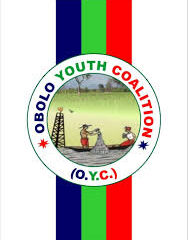Agriculture
LASUBUB Holds Agric Exhibition For Pupils
Lagos State Universal Basic Education Board (LASUBEB) has organised a pupils’ agriculture exhibition to boost farming in the state.
According to LASUBEB Executive Chairman, Wahab Alawiye King, the initiative is intended to promote agriculture in the state and also encourage farming among pupils.
The event, which was held at LASUBEB Multi-Purpose hall, Maryland, Ikeja, was attended by the Commissioner of the Ministry of Agriculture, Ms Abisola Olusanya.
Speaking at the gathering, Olusanya stated that agriculture is an effective tool against hunger and poverty, adding that it is very essential to major industries such as manufacturing, pharmaceuticals, plastic, etc.
She stated that agriculture is the catalyst of development in the country and also a bedrock of every profession, stating that no nation can survive without food.
She added that the domestic production of livestock and farm produce is far below national demand, which is leaving room for the importation of livestock with inflation, urging the pupils to continue to engage themselves in farming.
She urged teachers to introduce scientific methods of farming such as mechanised farming and other technical models in agriculture to EKOEXCEL pupils.
Speaking further, the LASUBEB Executive Chairman disclosed that 51 schools from 11 local government education authorities benefited from the agricultural training programme funded by Universal Basic Education Commission (UBEC), adding that the project is to foster agricultural skills in the pupils.
“Today shows that education is holistic. It is better to catch them young, over-reliance on oil and related products has to be discouraged. Agriculture is the most important sector and we are naturally endowed in this part of the world and as such, we need to take advantage of it.
“This is the harvest period; this is the second series and as you can see, it is a bumper harvest. It is to encourage the pupils into agriculture and to also show that it contributes to our economy”, he said.
At the exhibition, the pupils joyfully displayed various farm produce and livestock such as yam, plantain, cassava, chickens, pigs and many more.
EKOEXCEL pupils now attend and participate in such exhibitions with much-improved dramatisation and execution of their play-acting with an eagerness to showcase their development in school.
Before the introduction of EKOEXCEL, pupil attendance, pupil learning outcomes, teacher content knowledge, teacher motivation as well as pupil optimism were below par.
With EKOEXCEL, these drawbacks have been addressed by a technology-based platform that provides teachers with all the necessary tools and support that they need to help their pupils learn.
Agriculture
FG, Ogun Distribute Inputs To 2,400 Farmers
Federal Government and the Ogun State Government, on Wednesday, distributed farm inputs to farmers as part of effort to address food security challenge.
The State Director, Federal Ministry of Agriculture and Food Security, Dr. Toyin Ayo-Ajayi, during the flag-off ceremony of Inputs Redemption Under The National Agricultural Growth Scheme-Agro Pocket (NAGS-AP), in Ogun State, disclosed that beneficiaries of the gesture were primarily rice, maize and cassava farmers across the State.
Ayo-Ajayi commended the Ogun State Government for partnering with the government at the centre for the effort in supporting farmers with inputs that would bring about yieldings for local consumption and likely exportation.
She noted that government is supporting rice, cassava and maize farmers with inputs worth N212,000; N189,000 and N186,000 respectively.
The Permanent Secretary in the State Ministry of Agriculture, Mrs Kehinde Jokotoye, who represented the Commissioner in the Ministry, Bolu Owotomo, stated that traditional farmers are critical in food production, hence the need to encourage and support them with inputs that would bring about desired results during harvesting.
Owotomo said: “Let us make good use of this opportunity, so that the success of this phase will make farmers benefit more from the state and federal governments of Nigeria.”
Earlier, State Coordinator, Federal Ministry of Agriculture and Food Security, Dr. Oluwatoyin Ayo-Ajayi, appreciated the present administration for partnering with the federal government for the initiative, adding that the programme is designed to support farmers at the grassroots level in cassava, rice and maize with inputs such as, seeds, pesticides, herbicides and fertilizers, to boost their production and enhance their livelihood.
Agriculture
Niger Allocates 10,000 Hectares For Smallholder Farmers
The Niger State Government has mapped out 10,000 hectares of farmland in Gbapo Community of Katcha Local Government Area of the State for smallholder farmers to benefit from the state government’s agricultural intervention programme.
Two thousand out of the 10,000 holders of the farmlands have already received inputs.
At a flag-off ceremony in Yinti Village, the facilitator of the programme, Shinkafan Nupe, Malam Idris Usman Makanta, assured the farmers of increased distributions to the mapped-out ten thousand (10,000) farmlands if farmers respond positively.
He explained that the commencement of the two thousand is to measure the positive response of farmers before obtaining full-scale support.
Malam Makanta stated that this initiative aligns with the farmers’ initial commitment through Niger Foods, whose mission is primarily geared towards establishing efficient and profitable agricultural businesses to support the present administration of Governor Mohammed Umaru Bago’s quest to boost agricultural productivity in the state.
He also commended Niger Foods for their steadfastness and resilience in the effective implementation of the input financing scheme.
Makanta reiterated the commitment of the State Governor in making judicious use of the arable land in the state.
Shinkafan Nupe, therefore, urged the farmers to support the Governor by using the inputs wisely so that the dream can be actualised.
Agriculture
GO-CARES: Gombe Empowers 573,429 Farmers, Entrepreneurs
The Gombe State Government has empowered a total of 573,429 farmers and entrepreneurs under the 4th phase of the GO-CARES programme.
The programme was officially flagged off by Governor Inuwa Yahaya in another major step towards alleviating poverty and supporting the state’s vulnerable populations.
The Governor, while inaugurating the disbursement in Akko Community of Akko Local Government Area, restated his administration’s commitment to the welfare of vulnerable citizens in the state.
He was represented by the Commissioner for Budget and Economic Planning, Salihu Baba Alkali, who is also the Chairman of the Steering Committee on GO- CARES implementation.
“The 4th phase of GO-CARES will directly and indirectly impact a total of 573,429 citizens across the state. Of these, 152,429 individuals will benefit directly through cash transfers, livelihood grants, agricultural inputs, and operational grants to small businesses”, he stated.
The Governor added that, “421,000 people will be indirect beneficiaries through infrastructural projects such as classroom blocks, healthcare facilities, WASH services, and rural infrastructure projects like culverts and drainages”.
Yahaya, reaffirmed his commitment to ensuring that the state’s most vulnerable citizens are not left behind in the state’s development.
According to him, “Earlier this year, on June 25, 2024, we flagged off the distribution of improved seedlings, fertilizers, and herbicides to less privileged farmers in Malam Sidi, Kwami Local Government Area, signaling the commencement of the 4th phase implementation of GO-CARES under Result Area 2”.
The Governor reiterated that these initiatives have had a significant impact on the livelihoods of beneficiaries and the overall agricultural sector.
He explained that, “Today’s ceremony marked the simultaneous launch of activities under all three GO-CARES Result Areas for the 4th phase. These areas include: State Cash Transfer Grants: 2,500 direct beneficiaries; Labour Intensive Public Works: 2,700 direct beneficiaries; Livelihood Grants: 10,000 direct beneficiaries; and Basic Services: 405,000 indirect beneficiaries”.
-

 Politics2 days ago
Politics2 days agoProposed States Creation: Youth Leader Lauds Nass Over Obolo State Inclusion
-

 News2 days ago
News2 days agoTreasury Bills Attract N3.22trn From Investors
-

 Sports2 days ago
Sports2 days agoNPFL: Remo Narrowly Beat Pillars 2-1 To Maintain Lead
-

 News2 days ago
News2 days agoAfDB Dissatisfied With $210m Nigeria Agro-Industrial Zones Project
-

 Niger Delta2 days ago
Niger Delta2 days agoDiri Unhappy Over Poor State Of Public Schools
-

 Editorial2 days ago
Editorial2 days agoNew Federal Varsity In Ogoni
-

 News2 days ago
News2 days agoN70,000 Minimum Wage States’ Salaries Rise By 90% To N3.8trn
-

 Oil & Energy2 days ago
Oil & Energy2 days agoWAPCo Commences Four-Week Pipeline Maintenance

